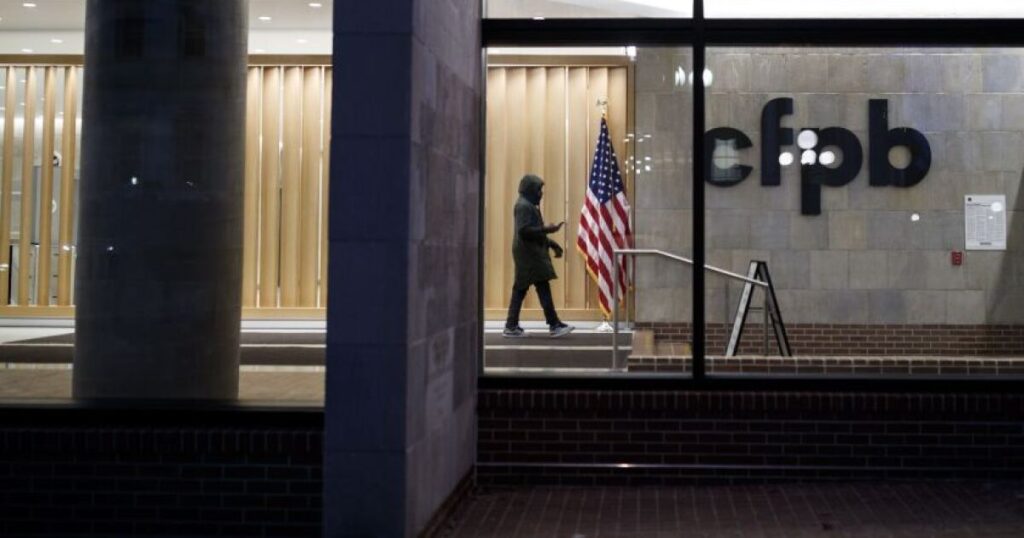The agency said it found issues with certain property inspection fees, fees to be eliminated by loan mods and mislabeled line items, according to the latest Supervisory Highlights report.
CFPB Director Rohit Chopra spoke about the crackdown on mortgage rates Wednesday during a press call at the White House to discuss the Biden administration’s efforts to
“Our CFPB oversight goes on the ground to these mortgage servicers and we’ve found all kinds of illegal junk fees, prohibited property inspection fees, misleading notices to homeowners that violate loan modification rules for struggling borrowers,” Chopra said on a call with reporters.
“We really hope that our reforms in these markets will lead to fairer and more competitive prices,” he continued. “I also think it will restore a little bit of confidence that people really need in the banking system because they are really tired of all these cost increases in the economy.”
What follows are more details about the fees the agency has cracked down on and some other related issues the CFPB identified during investigations between April and December of last year.
Charges for excessive inspections
If a borrower has gone too long without making a payment, inspections often need to take place, and service providers who pay for them may charge fees to the consumer in certain cases.
But there are some exceptions within the guidelines of the major government-related mortgage investor Fannie Mae, where inspections are not allowed. The agency said it found these exceptions were ignored in some cases.
“In total, servicers charged hundreds of borrowers fees for inspections of properties that were prohibited,” the CFPB said
According to the agency, there are exceptions if there is contact with the right party or payment in full within the last 30 days, a well-performing loss mitigation option or a bankruptcy plan.
Failure to provide harm reduction assistance
When a delinquent borrower enters into an agreement on a foreclosure alternative, the servicer is generally expected to stop charging late fees. In the event of COVID-19 rule changes under Regulation
The agency said it found some providers were not following these guidelines.
Generic specification
Citing rules in Regulation Z that call for servicers to provide “a brief description of the transaction” on account statements, the CFPB said it has called on some mortgage companies that handle consumer payments to be a bit more descriptive when itemizing charges after they discovered that some were not. .
To get an idea of what’s not acceptable to the agency, we can look at the description of one case in which it reportedly found that “the generic label ‘service fee’ corresponded to ’18 different types of fees.”
Escrow issues
The agency also said it encountered problems with service providers not distributing funds from escrow accounts in a timely manner. That’s something that should happen under Reg
“Examiners found that administrators attempted to make timely deposit payments, but the payments did not reach beneficiaries. Administrators did not resend the payments until months later,” the agency said.
That led to late fees that the agency found “servicers only reimbursed after borrowers complained.”
Communication and archiving of documents
The CFPB also noted issues surrounding borrower contact and reporting in its report, some of which could lead to improper reimbursements.
The agency expressed concern that some notices servicers would be required to provide to borrowers approved for accelerated foreclosure prevention or alternatives violated rules against unfair and deceptive practices.
According to the CFPB, some borrowers reported as approved actually were not.
The agency also found that other notices incorrectly reported delinquencies in cases where they should not have occurred, because borrowers had already made their payments, were testing a plan of change, or had an “inactive” loan due to a foreclosure or a short sale.
The agency also noted deficiencies in the notices required under Reg
These notices should acknowledge receipt of damage mitigation requests, indicate whether they are complete or not, and provide timely information about the deadlines for accepting offers, but instead they lacked this information.
Other violations of Reg
A similar concern was reported regarding “early intervention notices” that are supposed to be sent within the first 45 days. Borrowers are late in meeting their obligations “and every 180 days thereafter.”
Finally, the CPFB also found that in some cases, servicers failed to maintain documentation that should be kept for a year after a loan is forgiven or transferred.
Kate Berry contributed reporting to this story.


